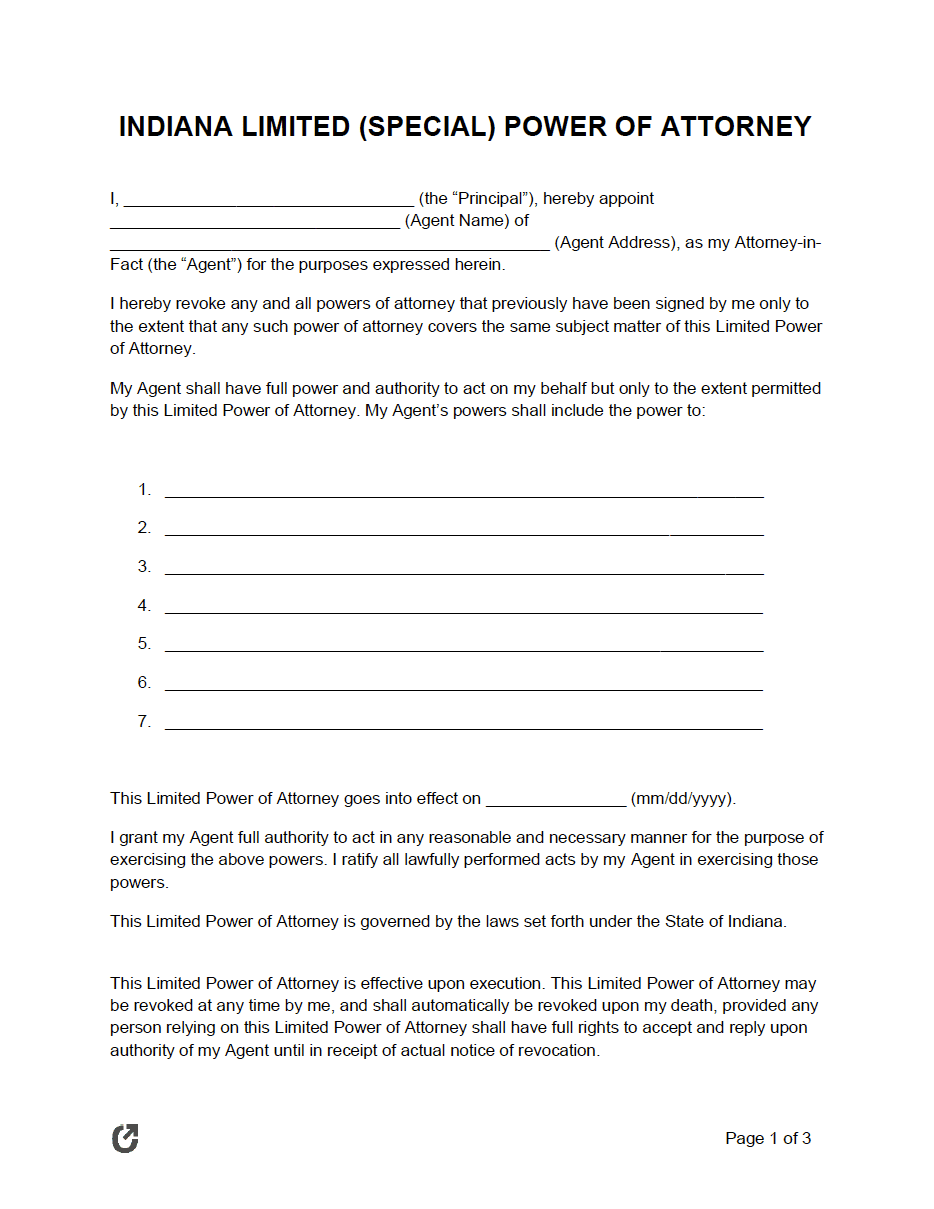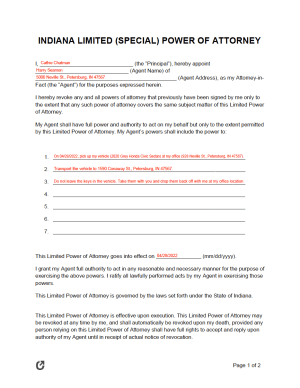Indiana Limited Power of Attorney Form
An Indiana limited power of attorney form certifies an appointed person as someone who can handle tasks for another individual, known as the principal. When executing the document, the principal provides very precise instructions for the agent to carry out the duties seamlessly. Although the state does not have an official government form, residents can use a generic template so long as both parties sign in the presence of a notary public.
| Statutes: §§ IC 30-5 to IC 30-5-11-11 Signing Requirements: Requires notarization (IC 30-5-4-1). |
How to Fill Out an Indiana LPOA
The first step to filling out an Indiana limited power of attorney is downloading the form. Next, print it if you are completing it by hand. Simply open the document if you wish to execute it electronically.
The principal must include their full name, the name of the agent, and the agent’s address. In the following section, they must write the exact details of what they need to be completed. They should include names of people involved, addresses, and other specific information. They can include an “effective” date which makes the form powerless until that time.
Since the form requires notarization, the principal and agent must wait to sign until they are in the presence of a notary public. They can make an appointment on the phone, online, or through eSign.com. The notary must check the identification of each person and witness their signatures before signing themselves.
How Does Limited Power of Attorney Work?
A limited power of attorney works by assigning a trusted person power to manage someone’s responsibilities without being there. It has a short time period as the principal does not use it when giving someone long-term tasks. For this reason, the document is considered “limited” because it restricts the agent on what they can and cannot do, unlike other power of attorney forms.
The representative may have to complete a legal form for someone, manage their real estate, buy personal property, or simply tend to their home while on vacation. Whatever the reason, the principal must ensure the agent knows exactly what to do. They must also provide them with their contact information if the agent needs to get ahold of them while carrying out the duties.

